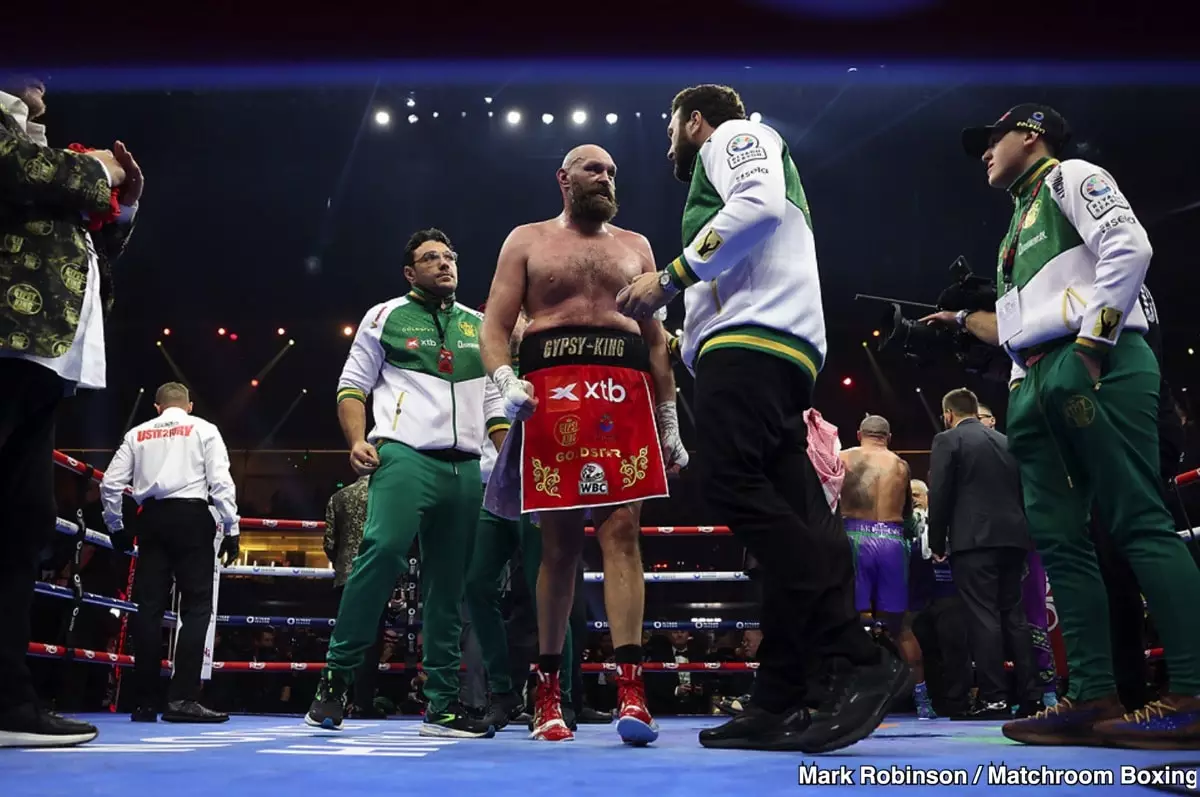Tyson Fury, the heavyweight boxing sensation, has once again thrust himself into the spotlight, but this time, the concern is not about his prowess in the ring. Following his recent retirement announcement, many analysts, including Gareth A. Davies, have raised questions about Fury’s physical and mental readiness to continue fighting. At 36 years old, a pivotal moment seems to have arrived for the Gypsy King, whose latest public appearances have been marked by an undeniable weariness that has many wondering if he will ever return to the sport that made him a household name.
The once-vibrant Fury, who electrified fans with his victory over Deontay Wilder, now appears drastically changed. Observers noted that he exuded a level of fatigue and disinterest during promotional events for his proposed rematch with Oleksandr Usyk. Gone is the charismatic fighter full of larger-than-life personality; instead, he seemed more like a fatigued veteran, prompting viewers to question whether he was truly the same individual who once dominated the ring.
Fury’s unexpected declaration of retirement might not signal an end to his boxing career, but rather a strategic move in a high-stakes game of negotiation. As Davies pointed out, there is speculation that this may very well be another ploy reminiscent of previous retirements that Fury has toyed with. His history is replete with instances where he has stepped back from the sport only to return, often motivated by financial incentives.
Possibly eyeing lucrative bouts against Anthony Joshua and others, Fury could be leveraging this moment to stir interest and elevate his market value. Given the substantial payday that could accompany these matches, it becomes increasingly apparent that financial gain might supersede the desire for a genuine retirement. It’s worth noting that Fury’s pragmatic approach to boxing aligns with his upbringing in a modest family, where financial security took precedence over mere titles.
Despite the national fervor, the broader public’s reaction to Fury’s potential retirement seems apathetic. While British fans cherish the Gypsy King, due to his humor and unique personality, many around the globe view him with skepticism. His theatrics often overshadow his fighting skills, which raises a critical question about his legacy: Is he genuinely a boxing great, or merely an entertainment figure whose antics have deceived the masses?
Moreover, the mottled history of Fury’s retirement announcements fuels cynicism about the authenticity of his current claims. He has, after all, not only retired before but has made the same claim multiple times, each serving as a prelude to another comeback. The current circumstances may be viewed as just another chapter in Fury’s ongoing narrative of comebacks and retirements, showcasing a tendency among elite athletes to manipulate public sentiment in their favor.
In assessing the trajectory of Tyson Fury’s career, one must ponder whether we are witnessing an end to an era of unique boxing drama or merely entering another cycle of suspense. Gareth A. Davies raises a point that cannot be ignored: real retirements in the sporting world are typically accompanied by fanfare and closure, yet Fury’s announcement lacks the gravitas typically associated with such moments.
If Fury’s retirement were genuine, then indeed, a celebration befitting a champion would seemingly be in order. Yet, it feels more like a cliffhanger than a conclusion, hinting at future drama that fans will consume eagerly. The notion of a comeback after a period of dramatic retirement is a narrative that sells. In the boxing arena, where the charismatic flair often trumps pure athleticism, Fury may retain his relevance longer than expected, regardless of his current claims.
While Tyson Fury’s current state is marked by uncertainty and fatigue, the possibility of a return looms large in the collective consciousness of boxing fans. Whether he truly retires or merely sets the stage for his next big payday, one thing is certain: the Gypsy King knows how to keep his audience engaged, creating a mixture of anticipation and skepticism about what comes next.


Leave a Reply